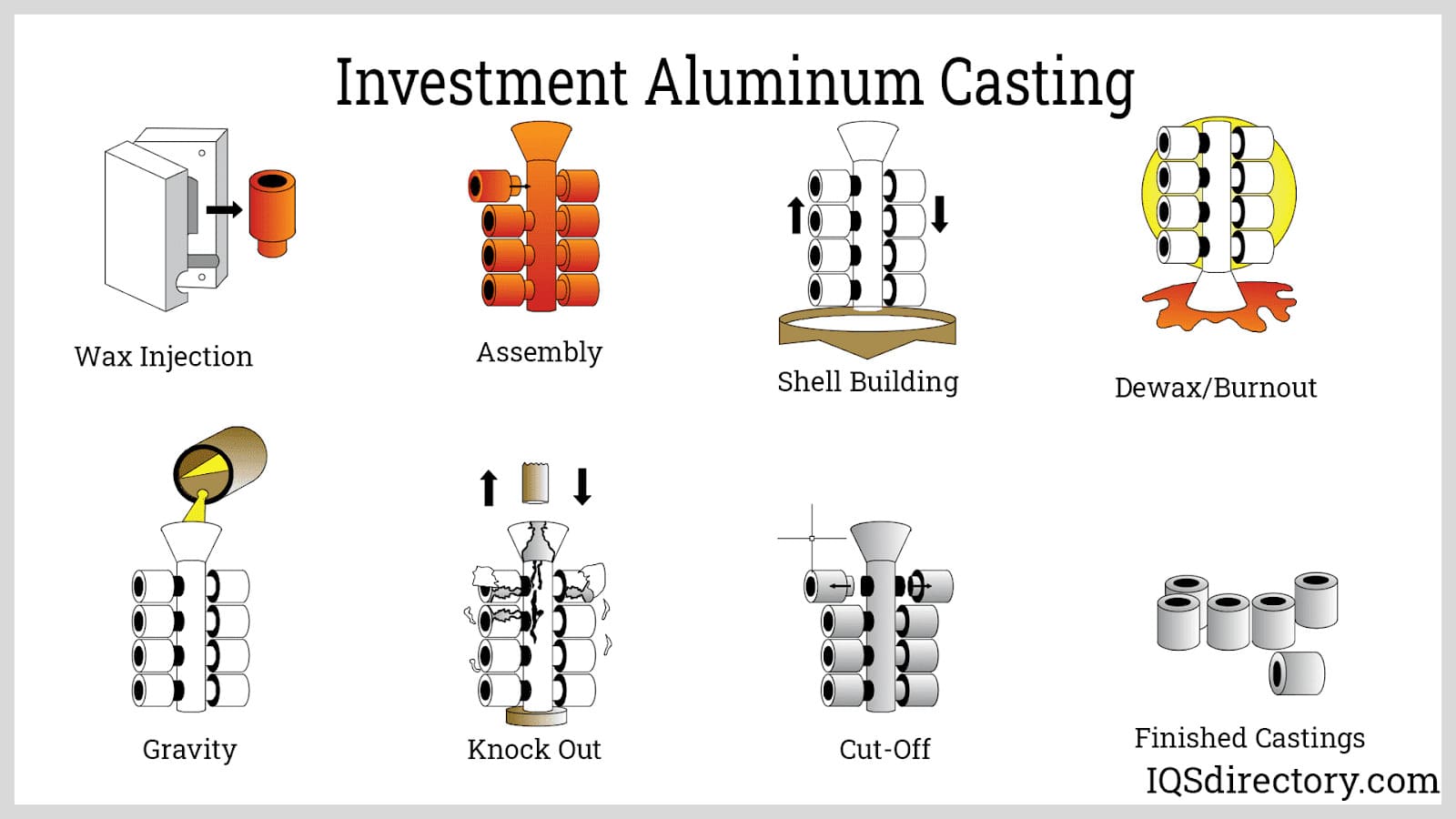The Buzz on Stahl Specialty Company
The Buzz on Stahl Specialty Company
Blog Article
Getting My Stahl Specialty Company To Work
Table of ContentsA Biased View of Stahl Specialty CompanyThe Facts About Stahl Specialty Company UncoveredThe Single Strategy To Use For Stahl Specialty Company3 Easy Facts About Stahl Specialty Company DescribedIndicators on Stahl Specialty Company You Need To Know
Chemical Comparison of Cast Light weight aluminum Alloys Silicon promotes castability by reducing the alloy's melting temperature and boosting fluidity throughout spreading. Furthermore, silicon contributes to the alloy's stamina and wear resistance, making it beneficial in applications where toughness is essential, such as automobile components and engine parts.It also enhances the machinability of the alloy, making it less complicated to process right into ended up products. This way, iron adds to the general workability of light weight aluminum alloys. Copper increases electrical conductivity, making it advantageous in electric applications. It also improves rust resistance and contributes to the alloy's total stamina.
Manganese contributes to the toughness of aluminum alloys and enhances workability. Magnesium is a lightweight component that provides strength and effect resistance to aluminum alloys.
It permits the production of light-weight parts with exceptional mechanical homes. Zinc improves the castability of aluminum alloys and helps regulate the solidification procedure during spreading. It boosts the alloy's strength and hardness. It is often discovered in applications where elaborate forms and great information are essential, such as decorative castings and specific automotive components.
Indicators on Stahl Specialty Company You Need To Know
Due to the fact that aluminum-silicon alloys have good spreading residential properties, high gas residential or commercial properties, easy processes, and outstanding corrosion resistance, aluminum-silicon alloys are most commonly used in the die-casting industry at home and abroad. At the same time, aluminum-silicon alloys are likewise relatively very early and widely acknowledged alloys developed and used in die-casting. After constant study and renovation, the majority of the present worldwide mainstream aluminum-silicon alloys have actually been wrapped up and are absolutely nothing even more than A356, A360, A380, ADC12, B390, and A413.
The main thermal conductivity, tensile toughness, return strength, and elongation vary. Amongst the above alloys, A356 has the highest thermal conductivity, and A380 and ADC12 have the least expensive.

The Main Principles Of Stahl Specialty Company
In accuracy casting, 6063 is well-suited for applications where detailed geometries and premium surface area finishes are critical. Examples consist of telecommunication enclosures, where the alloy's premium formability permits streamlined and aesthetically pleasing styles while keeping architectural integrity. In the Illumination Solutions sector, precision-cast 6063 components create sophisticated and effective illumination fixtures that need complex forms and good thermal efficiency.
(https://giphy.com/channel/stahlspecialc)
The A360 displays premium prolongation, making it perfect for facility and thin-walled components. In accuracy casting applications, A360 is well-suited for markets such as Consumer Electronic Devices, Telecommunication, and Power Tools.

In precision casting, aluminum 413 radiates in the Consumer Electronics and Power Equipment sectors. This alloy's superior corrosion resistance makes it an outstanding selection for exterior applications, ensuring durable, durable items in the mentioned industries.
The Facts About Stahl Specialty Company Revealed
When you have actually determined that the aluminum pass away casting process appropriates for your project, a critical next action is choosing the most ideal alloy. The aluminum alloy you choose will considerably affect both the casting procedure and the properties of the end product. Due to this, you must make your decision very carefully and take an informed method.
Identifying the most appropriate light weight aluminum alloy for your application will certainly suggest considering a vast variety of attributes. These comparative alloy attributes adhere to the North American Die Casting Association's guidelines, and we have actually split them right into 2 groups. Foundry. The first group addresses alloy characteristics that impact the production procedure. The second covers features influencing the residential properties of the final product.
The alloy you choose for die spreading straight influences numerous facets of the spreading procedure, like exactly how very easy the alloy is to deal with and if it is susceptible to casting defects. Hot cracking, likewise called solidification cracking, is a common die spreading flaw for aluminum alloys that can cause interior or surface-level tears or splits.
What Does Stahl Specialty Company Do?
Certain aluminum alloys Learn More Here are more prone to hot cracking than others, and your choice must consider this. Another usual defect discovered in the die spreading of aluminum is die soldering, which is when the cast adheres to the die wall surfaces and makes ejection challenging. It can damage both the actors and the die, so you should seek alloys with high anti-soldering residential or commercial properties.
Corrosion resistance, which is currently a notable feature of aluminum, can differ significantly from alloy to alloy and is an essential characteristic to consider depending on the environmental conditions your item will certainly be revealed to. Use resistance is an additional home frequently looked for in light weight aluminum items and can separate some alloys.
Report this page